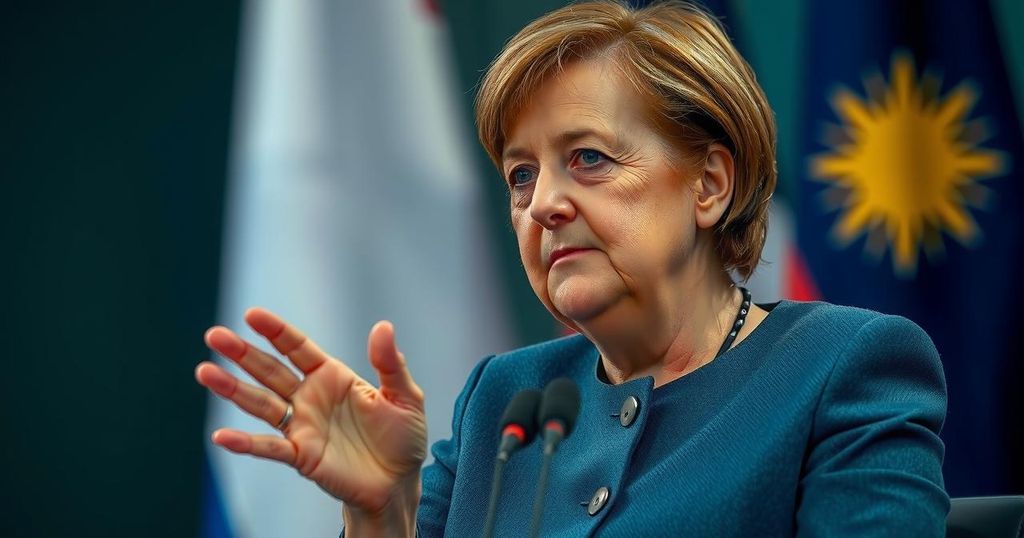Angela Merkel Reflects on Leadership in New Memoir: No Regrets

Angela Merkel’s memoir details her reflections on her chancellorship, addressing criticisms of her refugee policies and interactions with Russia. She defends her decisions during the refugee crisis and outlines her perspective on relations with Putin and Germany’s energy policy amid current geopolitical challenges.
Former Chancellor Angela Merkel reflects on her 16 years of leadership in her memoir, “Freedom: Memories 1954 – 2021”. Released in 30 languages, the book addresses criticisms regarding her handling of the refugee crisis and relations with Russia, particularly in light of ongoing geopolitical conflicts. Merkel maintains that her efforts to welcome refugees were well-intentioned and necessary, reiterating her belief in Europe’s obligation to provide protection.
She also defends her long-standing engagement with Russian President Vladimir Putin despite recognizing his aggressive tendencies. Merkel attributes the criticism of her energy policies mainly to the historical context, emphasizing that energy reliance on Russia was initiated prior to her chancellorship. Her memoir is both a reflection on past challenges and a cautionary tale for future German politics as the nation faces significant changes on the horizon.
Angela Merkel served as Germany’s Chancellor from 2005 until 2021, during which her leadership was characterized by a pragmatic and cautious approach to governance. Her policies, particularly regarding immigration and foreign relations, have been both praised and criticized. The 2015 refugee influx remains a pivotal moment in her tenure, drawing significant debate about her open-door policy. Additionally, her relationships with world leaders, particularly Vladimir Putin, have come under scrutiny given current global tensions, especially following Russia’s actions in Ukraine.
In her memoir, Angela Merkel articulates a steadfast belief in the policies she championed during her tenure, including her approach to the refugee crisis and engagement with Russia. While acknowledging the criticisms against her leadership, she asserts the necessity of compassion in governance, especially regarding asylum seekers, and underscores the importance of maintaining diplomatic ties. Merkel’s reflections serve as a significant analysis of contemporary challenges facing Germany and the broader European context.
Original Source: jordantimes.com








